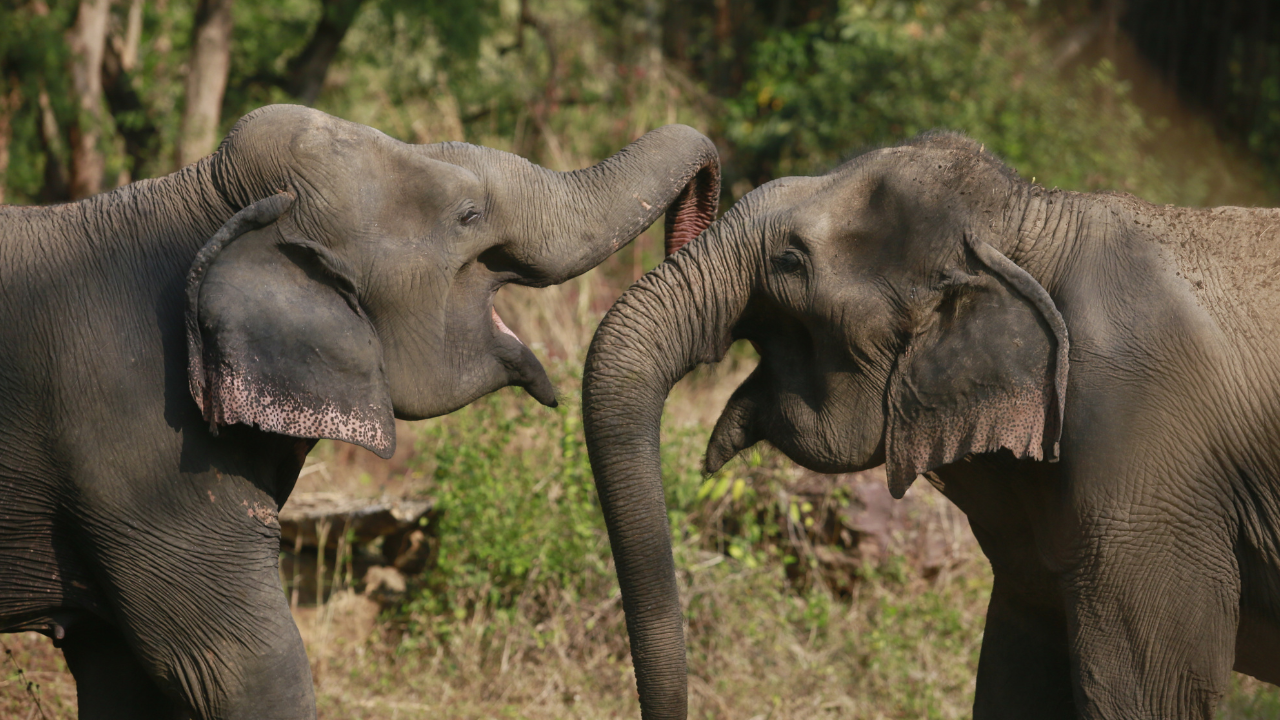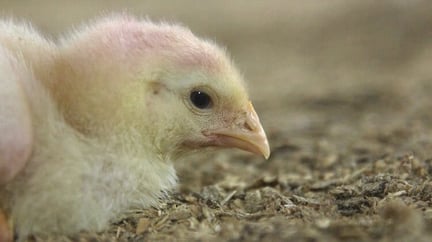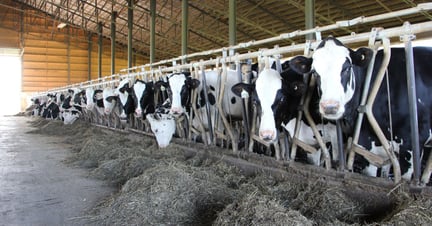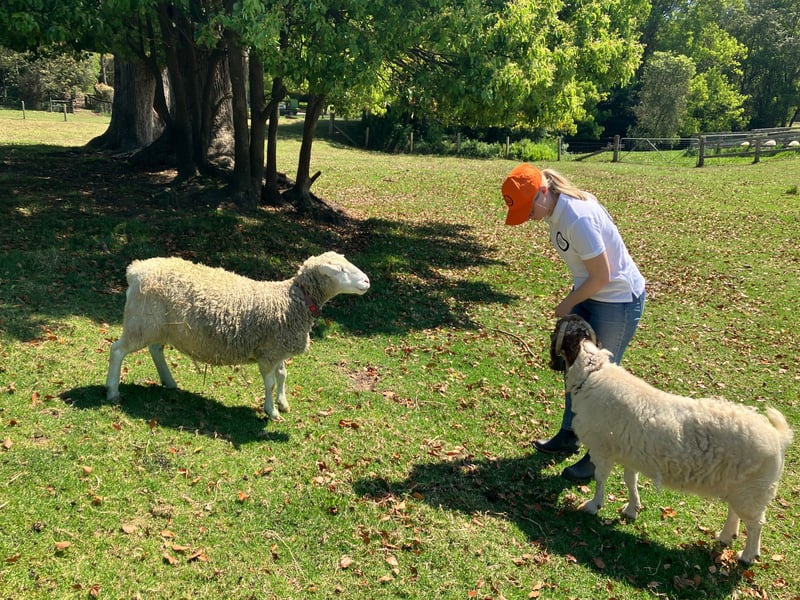
15 fascinating sheep facts — learn more about sheep intelligence and emotions
Blog
Sheep are often thought of as simple-minded, passive flock animals. But research shows they are anything but dumb. Read our favourite sheep facts to learn more about these misunderstood animals.
Sheep might not top most people’s lists for cleverest animals, but that’s not their fault. Sheep are actually super intelligent. They experience emotions, express stress, and can recognise the faces of both humans and their flock-mates.
Read our amazing facts about sheep to discover just how clever these woolly creatures are and why — like all animals — they deserve our respect. We’ll also help you better understand why current farming practices need to change to ensure sheep welfare.
1. Sheep don't forget a face
Sheep intelligence is often called into doubt as these animals (wrongly!) have a reputation for simply following the herd. So, how smart are sheep?
Research shows that sheep cognition and sheep memory are remarkable. They can recognise, differentiate, and remember both sheep and human faces. And not just one or two of them. An individual sheep can remember 50 different sheep faces over two years and at least 10 human faces.
Like people, sheep tend to analyse and recognise a face by looking at external features like the outline, ears, and hair. Then, when a face is more familiar, they focus more on internal characteristics like the eyes, nose, and mouth. So, if you catch one staring, they might be trying to memorise your features!
2. Sheep were domesticated 11,000 years ago
Sheep and humans have a pretty impressive history. Sheep domestication was historically significant for humans and marked the beginning of agricultural systems in South-West Asia about 11,000 years ago. 5,000 years later, agro-pastoralism spread throughout Europe, North Africa, and Asia.
Sheep and goats were the first animals to be domesticated. Initially, sheep were reared for their meat, milk, and skin but were bred selectively for their wool from around 5,000 BC.
Credit: herbert2512 / pixabay
3. Baby sheep are known as lambs
Male sheep are known as rams, female sheep are known as ewes, and baby sheep are known as lambs.
Lambs suckle until they’re four or five months old and then start to graze on grass. Sheep mature when they are around one year old and many breed when they are 18 months.
4. Over 200 sheep species are bred
Did you know that there are more than 200 distinct breeds of sheep worldwide? In the UK alone, farmers have bred over 80 different sheep species, the oldest being Welsh mountain sheep. Small but with a thick, wooly fleece, these sheep are hardy in the face of bad weather. Their ewes are also known to be good mothers.
5. Sheep are exploited for factory farming
Okay, so not all our sheep facts are fun. While sheep farming conditions vary, many are kept in factory farms that don’t allow them to behave naturally or healthily.
Sheep in factory farming environments are cruelly exploited, kept indoors permanently, and subjected to tail docking, a mutilation in which the whole or the tip of the tail is reduced without any anaesthesia.
Male sheep are subjected to painful castration operations, again, often without proper pain relief. Female sheep are sometimes artificially inseminated using methods that are painful for the animal.
Here at World Animal Protection, we work with the food industry to improve the welfare of sheep and ensure they can live a decent life. We promote farming that is more humane, sustainable and profitable — always alongside a reduction in meat consumption and support for sustainable, plant-based alternative protein.
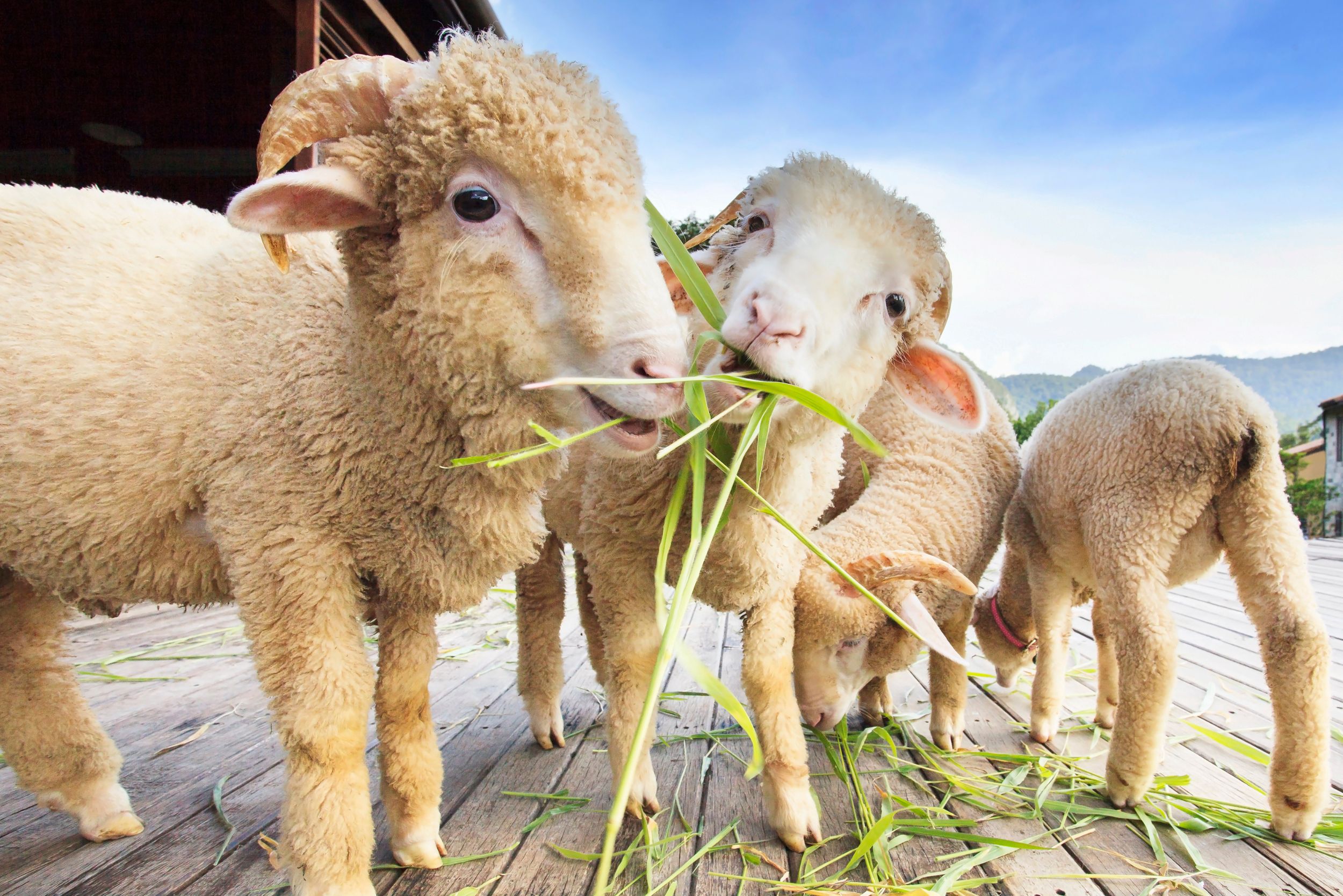
Credit: suriyasilsaksom / Getty Images
6. Sheep and goats are cousins — almost!
“Are sheep and goats related”?, we hear you ask. Here’s one of our favourite fun facts about sheep: Sheep and goats are different species but they are related.
Both sheep and goats belong to the Bovidae family, which includes other hoofed mammals like cattle and bison. However, sheep are part of the genus Ovis, while goats are part of the genus Capra. DNA analysis suggests that sheep became a distinct species from goats around 4 million years ago.
Credit: World Animal Protection
7. Sheep play follow the leader
Sheep have flocking instincts, meaning they feel safer when gathered together. They also tend to follow each other, with one bolder, more dominant sheep deciding where to lead the flock.
This sheep behaviour relies on strong social bonds. In fact, research shows that sheep social bonds are lasting and stable, with the closest relationships being between ewes and their lambs, and lambs and their littermates.
Thanks to research into sheep social complexity, we also know that sheep find it stressful to be separated from their flock and tend to either freeze or suddenly leap or bolt in response.
8. Dolly the sheep was the first ever cloned mammal
Sheep facts don’t get much more interesting than this! Dolly the sheep will go down in history as the first clone of an adult mammal. Before Dolly, nobody thought this type of cloning was possible.
Scientists took a mammary gland cell from an adult ewe and then used electrical pulses to join the mammary cell with an unfertilised egg cell. After further tinkering, the cell was transferred to a surrogate ewe who later gave birth to Dolly on 5 July 1996.
Dolly lived to be nearly seven years old and, during her life, gave birth to six lambs.
Credit: WSPA
9. Sheep experience the same emotions as people
Do sheep have feelings? Just like humans, sheep emotions are varied and complex. Scientists have shown that sheep experience a full spectrum of emotions including fear, anger, rage, despair, boredom, disgust, and happiness.
10. Sheep are highly sensitive animals
Sheep sentience is often ignored to justify the treatment of sheep in factory farming.
Though sheep can appear stoic in the face of pain, they are actually highly sensitive. Their resignation is just common prey behaviour. Sheep avoid demonstrating vulnerability to protect themselves from predators.
However, sheep do experience pain and express this discomfort by being less sociable, eating less, emitting odd vocalisations, and even changing their facial expressions.
11. Sheep talk about their feelings
Sheep might not be booking therapy sessions, but they do vocalise their emotions. In fact, sheep communication is more complex than you might think. Ewes have a special “care-giver” bleat for their lambs. They also make protesting and distressing bleats when they’re separated from their offspring.
By recording and analysing the full spectrum of bleating (and by tracking stressful situations the sheep experience) research suggests that sheep express feelings of stress and communicate it to one another, too.
12. Sheep are treated as wool machines
Sheep farming cruelty isn’t just associated with sheep reared for their meat. Some wool-producing sheep also experience cruel treatment and conditions.
On some farms, shearers are encouraged to shear sheep as quickly as possible. This means the sheep’s welfare is disregarded, as the animal is punched, stamped on, and carelessly cut with shearing equipment.
13. Penned sheep exhibit strange behaviour
When sheep are kept in a pen for long periods, they’ve been known to march round and round in a circle, sometimes for days at a time. This repeated circling could be due to frustration, with other sheep joining in the march as they tend to flock together.
14. Sheep endure gruelling voyages for human consumption or breeding
Hundreds of thousands of Australian sheep are forced to board live export ships each year, sent to foreign countries where they’re killed for meat or used as breeding stock.
Live sheep export results in extreme stress, illness, and injury for the animal. Many die in transit because of the filthy conditions, heat, dehydration, and starvation they endure across long journeys. Animals who do reach their destination are often roughly handled upon arrival or even killed while fully conscious. Such treatment is well below Australian animal welfare standards.
Here at World Animal Protection, we’ve been lobbying the Australian government for years, asking them to end live sheep exports. Thankfully, the government has now taken notice and — from 1st May 2028 — it will be illegal to export sheep by sea, with the practice already being phased out.
Credit: Jo-Anne McArthur / We Animals Media
15. Sheep deserve good lives
As we’ve seen across these amazing facts about sheep, sheep are intelligent and sentient beings who deserve to live good lives. World Animal Protection is working hard to make changes to the farming industry so it can continue to feed the world without supporting the abuse and cruel treatment of farm animals.
Want to do your bit? There’s so much you can do to help farm animals and protect sheep. Reducing your meat consumption and eating more plant-based food is a great place to start. You can also learn more about factory farming and how to campaign against it.
Want more animal and sheep welfare ideas? Then subscribe to the World Animal Protection newsletter and join our global community of animal protectors.
Related content
Chicken facts: funny to thought-provoking
Blog
Chickens are some of the most understood animals on the planet, yet they’re some of the most loveable. These facts will prove it
High animal welfare on farms
No future for factory farming
Find out how we work with the food industry to improve farm animal welfare and keep animals in an environment where they can benefit from a life worth living
Cows, calves, and ending factory farming
Blog
Dairy cows used for milk production in factory farms experience relentless suffering in a system that only seeks to exploit them.
